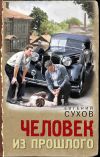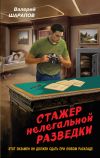Текст книги "The Mystery of the Sea / Тайна моря"

Автор книги: Брэм Стокер
Жанр: Исторические приключения, Приключения
Возрастные ограничения: +16
сообщить о неприемлемом содержимом
Текущая страница: 21 (всего у книги 31 страниц)
Chapter XXXIX. An Unexpected Visitor
I chatted with Mrs. Jack for a few minutes with what nonchalance I could muster, for I wanted to cover up Marjory's retreat. I have not the faintest idea what we talked about; I only know that the dear old lady sat and beamed on me, with her lips pursed up in thought, and went on with her knitting. She agreed with everything I said, whatever it was. I longed to follow Marjory and comfort her. I could see that she was distressed, though I did not know the measure of it. I waited patiently, however, for I knew that she would either come to me, or send me word to join her when she wanted me.
She must have come back very quietly, almost tip-toe, for I had not heard a sound when I saw her in the doorway. She was beckoning to me, but in such a manner that Mrs. Jack could not see her. I was about to go quietly, but she held up a warning hand with five fingers outspread; from which I took it that I was to follow in five minutes.
I stole away quietly, priding myself on the fact that Mrs. Jack did not notice my departure; but on thinking the matter over later, I came to the conclusion that the quiet old lady knew a good deal more of what was going on round her than appeared on the surface. Her little homily to Marjory on a wife's duty has set me thinking many a time since.
I found Marjory, as I expected, in the Ladies' Room. She was looking out of the window when I came in. I took her in my arms for an instant, and she laid her head on my shoulder. Then she drew herself away, and pointed to a great chair close by for me to sit down. When I was seated she took a little stool, and placing it beside me, sat at my feet. From our position I had to look down at her, and she had to look up at me. Often and often since then have I recalled the picture she made, sitting there in her sweet graceful simplicity. Well may I remember it, for through many and many an aching hour has every incident of that day, however trivial, been burned into my brain. Marjory leant one elbow on the arm of my chair, and put the other hand in mine with a sweet confiding gesture which touched me to the heart. Since our peril of two nights before, she was very, very dear to me. All the selfishness seemed to have disappeared from my affection for her, and I was her true lover as purely as it is given to a man to be. She wanted to speak; I could see that it was an effort to do so, for her breast heaved a few times, as a diver breathes before making his downward leap. Then she mastered herself, and with infinite grace and tenderness spoke:
“I'm afraid I have been very selfish and inconsiderate. Oh! yes I have” for I was commencing a protest. “I know it now. Mrs. Jack was quite right. It never occurred to me what a brute I have been; and you so good to me, and so patient. Well, dear, that's all over now! I want to tell you, right here, that if you like I'll go away with you to-morrow-to-day if you wish; and we'll let every one know that we are married, and go and live together.” She stopped, and we sat hand in hand with our fingers clasping. I remained quite still with a calm that amazed me, for my brain was in a whirl. But somehow there came to me, even as it had come to her, a sense of duty. How could I accept such a sweet sacrifice. The very gravity of her preparation for thought and speech showed me that she was loth to leave the course on which she had entered. That she loved me I had no doubt; was it not for me that she was willing to give it all up. And then my course of action rose clear before me. Instinctively I stood up as I spoke to her, and I felt that big stalwart man as I was, the pretty self-denying girl at my feet ruled me, for she was more to me than my own wishes, my own hopes, my own soul.
“Marjory, do you remember when you sat on the throne in the cave, and gave me the accolade?” She bowed her head in acquiescence; her eyes fell, and her face and ears grew rosy pink. “Well, when you dubbed me your knight, and I took the vow, I meant all I said! Your touch on my shoulder was more to me than if it had come from the Queen on her throne, with all the glory of a thousand years behind her. Oh, my dear, I was in earnest-in earnest then, as I am in earnest now. I was, and am, your true knight! You are my lady; to serve, and make her feet walk in easy ways! It is a terrible temptation to me to take what you have offered as done, and walk straightway into Paradise in our new life. But, my dear! my dear! I too can be selfish if I am tempted too far; and I must not think of my own wishes alone. Since I first saw your face I have dreamt a dream. That a time would come when you, with all the world to choose from, would come to me of your own free will. When you wouldn't want to look back with regret at anything, done or undone. I want you to be happy; to look forward only-unless the backward thought is of happiness. Now, if you give up your purpose and come to me with the feeling that you have only made a choice, the regret that you did not have the opportunity you longed for, may grow and grow, till-till it may become an unhappiness. Let me be sententious for a moment. 'Remember Lot's wife' was not merely the warning of a fact; it touched a great allegory. You and I are young; we are both happy; we have all the world before us, and numberless good things to thank God for. I want you to enjoy them to the full; and, my dear one, I will not stand in your way in anything which you may wish. Be free, Marjory, be quite free! The girl I want beside my hearth is one who would rather be there than anywhere else in the wide world. Isn't that worth wishing for; isn't it worth waiting for? It may be selfish in the highest plane of selfishness; I suppose it is. But anyhow, it is my dream; and I love you so truly and so steadfastly that I am not afraid to wait!”
As I spoke, Marjory looked at me lovingly, more and more. Then all at once she broke down, and began to sob and cry as if her heart would break. That swept away in a moment all my self-command; I took her in my arms and tried to comfort her. Kisses and sweet words fairly rained upon her. Presently she grew calm, and said as she gently disengaged herself:
“You don't know how well you argue. I'm nearer at this moment to giving up all my plans, than I ever thought I should be in my life. Wait a little longer, dear. Only a little; the time may be shorter than you think. But this you may take for your comfort now, and your remembrance later; that in all my life, whatever may come, I shall never forget your goodness to me, your generosity, your love, your sympathy-your-! But there, you are indeed my Knight; and I love you with all my heart and soul!” and she threw herself into my arms.
When I left Crom after lunch the weather seemed to have changed. There was a coldness in the air which emphasised the rustling of the dry leaves as they were swept by intermittent puffs of wind. Altogether there was a sense of some presage of gloom-or disaster-of discontent, I knew not what. I was loth to part with Marjory, but we both felt it was necessary I should go. I had not had my letters for three days; and besides there were a thousand things to be attended to about the house at Whinnyfold. Moreover, we began to think of the treasure, the portable part of which-the jewels-was left almost open in the dining room. I did not want to alarm Marjory by any dim fears of my own; I knew that, in any case, there might be a reaction from her present high spirits. The remembrance of the trials and anxieties of the past few days would come back to her in the silence of the night. She saw, however, with the new eyes of her wifely love, that I was anxious about something; justly inferring that it was about her, she said to me quietly:
“You need not be alarmed about me, darling. I promise you I shall not stir out of the house till you come. But you will come as early as you can to-morrow; won't you. Somehow, I don't like your leaving me now. I used not to mind it; but to-day it all seems different. We don't seem to be the same to each other, do we, since we felt that water creep up us in the dark. However, I shall be very good. I have a lot of work to do, and letters to write; and the time may not go so very slowly, or seem so very long, till I see my husband again.”
Oh! it was sweet to look in her eyes, and see the love that shone from them; to hear the delicate cooing music of her voice. My heart seemed to fly back to her as I moved away; and every step I took, its strings seemed nearer and nearer to the breaking point. When I looked back at the turn of the winding avenue between the fir trees, the last I saw through my dimming eyes was the wave of her hand and the shining of her eyes blending into one mass of white light.
In my rooms at the hotel I found a lot of letters about business, and a few from friends. There was one however which made me think. It was in the writing of Adams, and was as follows, no place or date being given:
“The people at Crom had better be careful of their servants! There is a footman who often goes out after dark and returns just before morning. He may be in league with enemies. Anyhow, where he gets out and in, and how, others may do the same. Verb. sap, suff. A.”
We had been watched then, and by the Secret Service detectives. I was glad that Marjory had promised not to go out till I came. If “Mac's men” had seen her, others might also; and the eyes of the others might have been more penetrating, or their reasoning powers more keen. However, I thought it well to send her a word of warning. I copied Adams's letter into mine, with just a word or two of love added. I was amazed to find that altogether it ran to several pages! The gillie of the hotel took it over in a pony cart, with instructions to bring me back an answer to Whinnyfold. For safety I enclosed it in an envelope to Mrs. Jack. Then, when I had written a few notes and telegrams, I biked over to my house on the cliff.
It was a bleak afternoon and everything seemed grey, sky and sea alike; even the rocks, with their crowning of black seaweed swept with the foam of lapping waves. Inside the house nothing had of course been stirred; but it seemed so bleak without a fire and with the curtains wide, that I made up a fire of billets and drew the heavy curtains close. As I stood in the great bay window and looked out on the fretting sea, and listened to the soughing of the rising wind, a great melancholy seemed to steal over me, so that I became in a way lost in a mist of gloom. So far as I remember, my thoughts were back with the time when I had seen the procession of the dead coming up out of the sea from the Skares beyond, and of the fierce looking Spaniard who walked alone in their ranks and looked at me with living eyes. I must have been in a sort of day-dream and unconscious of all around me; for, though I had not noticed any one approaching, I was startled by a knocking at the door. The house was not quite finished; there were electric bells in position, but they had not yet been charged, and there was no knocker on the door. The knocking was that of bare knuckles on a panel. I thought of course that it was the gillie back from Crom, for I did not expect any one else; so I went at once and opened the door. I recoiled with pure wonder. There, looking grave and dignified, an incarnation of the word 'gentleman' stood Don Bernardino. His eyes, though now serene, and even kindly, were the eyes of the dead man from the sea. Behind him, a few yards off, stood Gormala MacNiel with an eager look on her face, half concealed by such a grin as made me feel as though I had been trapped, or in some way brought to book. The Spaniard at once spoke:
“Sir, your pardon! I wish much that I may speak with you in private, and soon. Forgive me if that I trouble you, but it is on a matter of such moment, to me at the least, that I have ventured an intrusion. I learned at the hotel that you had hither come; so with the guidance of this good lady, who did me much inform, I have found.” As he spoke of Gormala, he half turned and made a gesture towards her. She had been watching our every movement with cat-like eagerness; but when she saw that we were speaking of her, a dark look swept her face, and she moved away scowling. The Spaniard went on:
“What I have to say is secret, and I would be alone with you. May it be that I enter your house; or will you come to mine? I do not mean my castle of Crom, but the house at Ellon which I have taken, until such time as the Senora Jack and that so fair patriot of hers shall wish to leave it.” His manner was so gravely courteous and his bearing so noble, that I found it almost impossible to mistrust him, even when there flashed across my memory that dark red-eyed look of his at Crom, which recalled so vividly the dead Spaniard with the living eyes of hate in the procession of ghosts from the Skares. I felt that, in any case, it could not do any harm to hear what he had to say: 'Forewarned is forearmed' is a good apothegm in dealing with an enemy. I motioned him into the house; he bowed gravely and entered. As I shut the door behind us, I caught sight of Gormala with an eager look on her face stealing swiftly towards the house. She evidently wanted to be near enough to watch, and to hear if she could.
As I was opening the door of the drawing-room for Don Bernardino to enter, a sudden glimpse of its interior, seen in the dim light through the chinks of the shutters, changed my plans. This was the room improvised as a dressing room for Marjory, and the clothes which she had worn in the cave were scattered about the room, hung over the backs of chairs to dry. Her toilet matters also were on the table. Altogether I felt that to bring the stranger into the room would not only be an indelicacy towards my wife, but might in some way give a clue to our enemy to guess our secret. With a hasty excuse I closed the door and motioned my guest into the dining room across the hall. I asked him to be seated, and then went over to the window and pulled aside the curtains to give us light. I felt that somehow I was safer in the light, and that it might enable me to learn more than I could have done in the dim twilight of the curtained room.
When I turned round, the Spaniard was still standing, facing me. He appeared to be studiously keeping himself still; but I could see that under his long black lashes his eyes were roaming round the room. Unconsciously to myself, as I know now, my eyes followed his and took in the frightful untidiness of the place. The great hearth was piled with extinct ashes; the table was littered with unwashed cups and plates and dishes, for we had not cleared up anything after our night in the cave. Rugs and pillows were massed untidily on the floor, and the stale provisions on the table made themselves manifest in the close atmosphere of the room. I was moving over to throw up the window so as to let in a little fresh air, when I remembered that Gormala was probably outside with her ears strained close to the wall to hear anything that we might say. So, instead, I apologised for the disorder, saying that I had camped me there for some days whilst working at my book-the excuse I had given at the hotel for my spells of solitary life.
The Spaniard bowed low with grave courtesy, and implored that I would make no apology. If there were anything not perfect, and for himself he did not see it, such deficiencies were swept away and lost in the tide of honour with which I had overwhelmed him in the permission to enter my house; and much more to the same effect.
Then he came to the serious side of things and began to speak to the point.
Chapter XL. The Redemption Of A Trust
“Senor, you may wonder why I am here, and why I would speak with you alone and in secret. You have seen me only in a place, which though my own by birthright, was dominated by the presence of ladies, who alas! by their nationality and the stress of war were mine enemies. From you is not such. Our nations are at peace, and there is no personal reason why we should not be of the most friendly. I come to you, Senor, because it is borne to me that you are cavalier. You can be secret if you will, and you will recognise the claims of honour and duty, of the highest. The common people know it not; and for the dear ladies who have their own honour, our duties in such are not a part of their lives-nay! they are beyond and above the life as it is to us. I need not tell you of a secret duty of my family, for it is known to me that all of such is already with you. The secret of the Pope's treasure and of the duty of my House to guard and restore it has been in your mind. Oh yes, this I know” for he saw I was about to speak. “Have I not seen in your hands that portion of the book, so long lost!” Here he stopped and his eyes narrowed; some thought of danger, necessitating caution, had come to him. I, too, was silent; I wanted to think. Unless I had utterly misconceived him, he had made an extraordinary admission; one which had given him away completely. The only occasion on which I had seen him was when he had pointed out to us that the pages which I had found belonged to the book in the library. It is true that we had suggested to him that there was a cipher in the marking of the letters, but he had not acknowledged it. At the time he certainly did not convey the idea to us that he believed we had grasped the secret. How then did he know; or on what assumption did he venture to state that I knew his secret. Here was a difficult point to pass. If I were silent he would take all for granted; in such case I might not learn anything of his purpose. So I spoke:
“Your pardon, Sir, but you presume a knowledge on my part of some secret history of your family and of a treasure of the Pope; and then account for it that you have seen in my hand the book, a part of which was long lost. Am I to take it that because there is, or may be, a secret, any one who suspects that there is one must know it?” The steady eyes of the Spaniard closed, narrower and narrower still, till the pupils looked like those of a cat in the dark; a narrow slit with a cavern of fire within. For fully half a minute he continued to look at me steadily, and I own that I felt disconcerted. In this matter he had the advantage of me. I knew that what he said was true; I did know the secret of the buried treasure. He had some way of knowing the extent of my knowledge of the matter. He was, so far, all truth; I was prevaricating-and we both knew it! All at once he spoke; as though his mind were made up, and he would speak openly and frankly. The frankness of a Latin was a fell and strange affair:
“Why shall we beat about the bush. I know; you know; and we both know that the other knows. I have read what you have written of the secret which you have drawn from those marked pages of the law book.”
As he spoke the whole detail of his visit to Crom rose before me. At that time he had only seen the printed pages of the cipher; he had not seen my transcript which had lain, face down, upon the table. We had turned it, on hearing some one coming in.
“Then you have been to the castle again!” I said suddenly. My object was to disconcert him, but it did not succeed. In his saturnine frankness had been a complete intention, which was now his protection against surprise.
“Yes!” he said slowly, and with a smile which showed his teeth, like the wolf's to Red Ridinghood.
“Strange, they did not tell me at Crom,” I said as though to myself.
“They did not know!” he answered. “When next I visited my own house, it was at night, and by a way not known, save to myself.” As he spoke, the canine teeth began to show. He knew that what he had to tell was wrong; and being determined to brazen it out, the cruelty which lay behind his strength became manifest at once. Somehow at that moment the racial instinct manifested itself. Spain was once the possession of the Moors, and the noblest of the old families had some black blood in them. In Spain, such is not, as in the West, a taint. The old diabolism whence sprung fantee and hoo-doo seemed to gleam out in the grim smile of incarnate, rebellious purpose. It was my cue to throw my antagonist off his guard; to attack the composite character in such way that one part would betray the other.
“Strange!” I said, as though to myself again. “To come in secret into a house occupied by another is amongst civilised people regarded as an offence!”
“The house is my own!” he retorted quickly, with a swarthy flush.
“Strange, again!” I said. “When Mrs. Jack rented the castle, there was no clause in her agreement of a right to the owner to enter by a secret way! On the contrary such rights as the owner reserved were exactly specified.”
“A man has a right to enter his own house, when and how he will; and to protect the property which is being filched from him by strangers!” He said the last words with such manifest intention of offence that I stood on guard. Evidently he wanted to anger me, as I had angered him. I determined that thenceforward I should not let anything which he might say ruffle me. I replied with deliberate exasperation:
“The law provides remedies for any wrongs done. It does not, that I know of, allow a man to enter secretly into a house that he has let to another. There is an implied contract of peaceful possession, unless entry be specified in the agreement.” He answered disdainfully:
“My agent had no right to let, without protecting such a right.”
“Ah, but he did; and in law we are bound by the acts of our agents. 'Facit per alium' is a maxim of law. And as to filching, let me tell you that all your property at Crom is intact. The pieces of paper that you claimed were left in the book; and the book has remained as you yourself placed it on the shelf. I have Mrs. Jack's word that it would be so.” He was silent; so, as it was necessary that the facts as they existed should be spoken of between us, I went on:
“Am I to take it that you read the private papers on the table of the library during your nocturnal visit? By the way, I suppose it was nocturnal.”
“It was.”
“Then sir,” I spoke sharply now, “who has done the filching? We-Miss Drake and I-by chance discovered those papers. As a matter of fact they were in an oaken chest which I bought at an auction in the streets of Peterhead. We suspected a cipher and worked at it till we laid bare the mystery. This is what we have done; we who were even ignorant of your name! Now, what have you done? You come as an admitted guest, by permission, into a house taken in all good faith by strangers. When there you recognised some papers which had been lost. We restored them to you. Honour demanded that you should have been open with us after this. Did you ask if we had discovered the secret of the trust? No! You went away openly; and came back like a thief in the night and filched our secret. Yes sir, you did!” He had raised his hand in indignant protest. “It was our secret then, not yours. Had you interpreted the secret cipher for yourself, you would have been within your rights; and I should have had nothing to say. We offered to let you take the book with you; but you refused. It is evident that you did not know the whole secret of the treasure. That you knew there was a treasure and a secret I admit; but the key of it, which we had won through toil, you stole from us!”
“Senor!” the voice was peremptory and full of all that was best and noblest in the man. “A de Escoban is not wont to hear such an allegation; and he who makes such shall in the end have his own death to answer for!” He stopped suddenly, and at his stopping I exulted secretly; though I wished to punish him for his insinuation that Marjory had filched from him, I had no desire to become entangled in a duel. I was determined to go on, however; for I would not, at any hazard, pass a slight upon my peerless wife. I think that his sudden pause meant thought; and thought meant a peaceful solution of things on my own lines. Nevertheless, I went on forcing the issue:
“I rejoice, sir, that you are not accustomed to hear such allegations; I trust that you are also not accustomed to deserve them!” By this time he was calm again, icily calm. It was wonderful with what rapidity, and how widely, the pendulum of his nature swung between pride and passion. All at once he smiled again, the same deadly, dreadful smile which he imagined to be the expression of frankness.
“I see I am punished! 'Twas I that first spoke of stealing. Senor, you have shown me that I was wrong. My pardon to that so good lady who is guest of my house; and also to that other patriotic one who so adorns it. Now let me say, since to defend myself is thrust upon me, that you, who have, with so much skill made clear the hidden mystery of that law book which I have only lately read, know best of all men how I am bound to do all things to protect my trust. I am bound, despite myself, even if it were not a duty gladly undertaken for the sake of the dead. It was not I who so undertook; but still I am bound even more than he who did. I stand between law and honour, between life and death, helpless. Senor, were you in my place, would you not, too, have acted as I did? Would you not do so, knowing that there was a secret which you could not even try to unravel, since long ago that in which it was hidden had been stolen or lost. Would you not do so, knowing, too, that some other-in all good faith and innocence let us say-had already made discovery which might mock your hopes and nullify the force of that long vigil, to which ten generations of men, giving up all else, had sacrificed themselves? Would not you, too, have come in secret and made what discovery you could. Discovery of your own, mark you! Would not also that lady so patriotic, to whom all things come after that devotion to her country, which so great she holds?”
Whilst he was speaking I had been thinking. The pretence of ignorance was all over to both of us; he knew our knowledge of the secret trust, and we knew that he knew. The only thing of which he was yet ignorant, was that we had discovered the treasure itself. There was nothing to be gained by disputing points of conjectural morals. Of course he was right; had either Marjory or myself considered ourselves bound by such a duty as lay so heavy on him we should have done the same. I bowed as I answered;
“Sir, you are right! Any man who held to such a duty would have done the same.”
“Senor,” he answered quickly, “I thank you with all my heart!” Poor fellow, at that moment I pitied him. The sudden flash of joy that leaped to his face showed by reaction in what a hell he must have of late been living. This momentary episode seemed to have wiped away all his bitterness; it was in quite a different way that he spoke again:
“And now, Senor, since your engaging frankness has made my heart so glad, may I ask further of your kindness. Believe me that it is not of my own will, but from an unbending sense of duty that I do and may have to do such things; my life till lately has been otherwise, oh! so much so! You have the feelings of honour yourself; like me you are also man of the world, and as such we can sacrifice all things save honour. Is there no way in which you can aid me to fulfill my trust; and let there be peace between us?” He looked at me anxiously; I said:
“I fear I hardly understand?” With manifest embarrassment he went on;
“You will forgive me if I err again; but this time I must make myself clear. It is manifest to me that in these days of science nothing can long remain hidden, when once a clue has been found. You already know so much that I am placed almost as though the treasure has already been found. Thereafter where am I; what am I? One who has failed in his trust. Who has allowed another to step in; and so dishonour him! A moment, Senor, and I am done,” for he saw that I was about to speak. “It is not the treasure itself that I value, but the trust. If I could make it safe by the sacrifice of all my possessions I would gladly do so. Senor, you are still free. You have but to abandon your quest. It is not to you a duty; and therefore you sacrifice naught of honour should you abandon it. Here I pledge to you-and, oh Senor, I pray have patience that you take no affront that I do so-that in such case I shall give to you all that I have. Give it gladly! So, I may redeem the trust of my House; and go out into the wide world, though it may be as a beggar, yet free-free! Oh! pause, Senor, and think. I am rich in the world's goods. My ancestors were of vast wealth; even at that time when the great Bernardino did give his ship to his king. And for three centuries all have been prudent; and all their possessions have grown. There are vast lands of corn, great forests, many castles, whole ranges of mountains as yet untouched for their varied treasures which are vast. There are seaports and villages; and in all, the dwellers are happy and content. I am the last of my race. There is none to inherit; so I am free to pledge myself.” He did not bow or bend; there was no persistence of request in his voice, or tone, or manner. In all there was no feeling of a bargain. It was an offer, based on the fulfillment of his own desires; given in such a lordly way that there could be no offence in it. He re-cognised so thoroughly the strength of my own position, that the base side of barter became obliterated; it was an exchange of goods between gentlemen. Such, at least, I recognised was his intellectual position; my own remained the same. How could I, or any man, take advantage of such an offer. After thinking a few seconds I said to him:
“Sir, you have honoured me by grouping us as men of ho-nour. What would you do in my place?” His eye brightened, and his breath came more quickly as he replied:
“Were it my case, I should say: 'Senor, your duty is one of honour; mine is one of gain. There can be no comparisons. Fulfill your debt to your forefathers! Redeem the pledge that they have made in your name! Discover your treasure; and be free!'” There was infinite pride in his voice and manner; I think he really meant what he said. I went on with my questioning:
Правообладателям!
Это произведение, предположительно, находится в статусе 'public domain'. Если это не так и размещение материала нарушает чьи-либо права, то сообщите нам об этом.








































